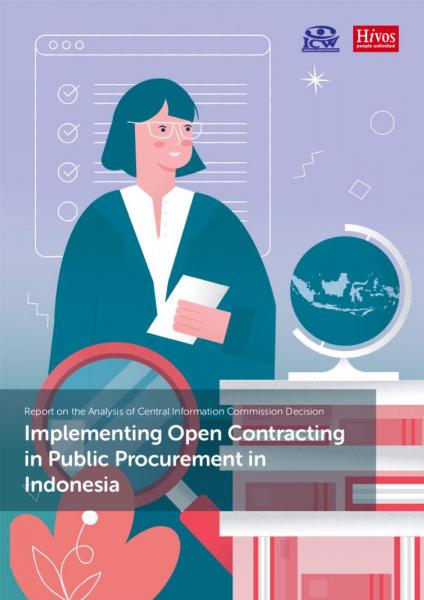Implementing Open Contracting in Indonesia

Indonesia already has a Law on Public Information Disclosure Number 14 of 2008 which provides everyone the right to access information managed by the government. This law also requires the government to be transparent and to publish their information.
Unfortunately, after nearly 10 years of its implementation, the government agencies still have different views and opinions regarding public information disclosure, including in public procurement sector. Many public bodies assume that procurement information, especially contract documents, are exempt information and not for public to access. As a result, it is difficult for people to monitor all government projects because there is no access to any procurement information. Therefore, it is not surprising that procurement sector is prone to corruption. Based on data compiled by Indonesia Corruption Watch (ICW), an average of 40 percent of corruption cases handled by law enforcement in 2010 to 2017 are related to government’s procurement projects. Even though there are many factors that may cause corruption to occur, it is worsen by the lack of public participation in overseeing government’s procurement project due to lack of information access.
According to the Law on Public Information Disclosure, information on government’s agreements with third parties is public information. Therefore, it is only natural that the government disclose procurement contract information to the citizens. Thus, the available information should be accessible and be used to provide input and monitor government’s projects. In addition, disclosure of contract documents can also result in better quality procurement and encourage budget efficiency.
The idea of open contracting in public procurement is in line with the 2018-2020 Open Government of Indonesia action plan, particularly to increase transparency of the procurement process. The goal is to publish all procurement documents in the form of open data. In order to achieving it, there are at least four indicators:
1) the availability of updated decree of the National Public Procurement Agency (NPPA) related to their internal List of Public Information for procurement documents;
2) the availability of recommendations for the implementation of the List of Public Information Decree on government goods and services by the NPPA;
3) the implementation of public consultations related to List of Public Information regulations on procurement in central government by the Central Information Commission; and
4) the Information Commission Regulations issuance related to the List of Public Information in public procurement as well as civil society capacity building in overseeing public procurement.










